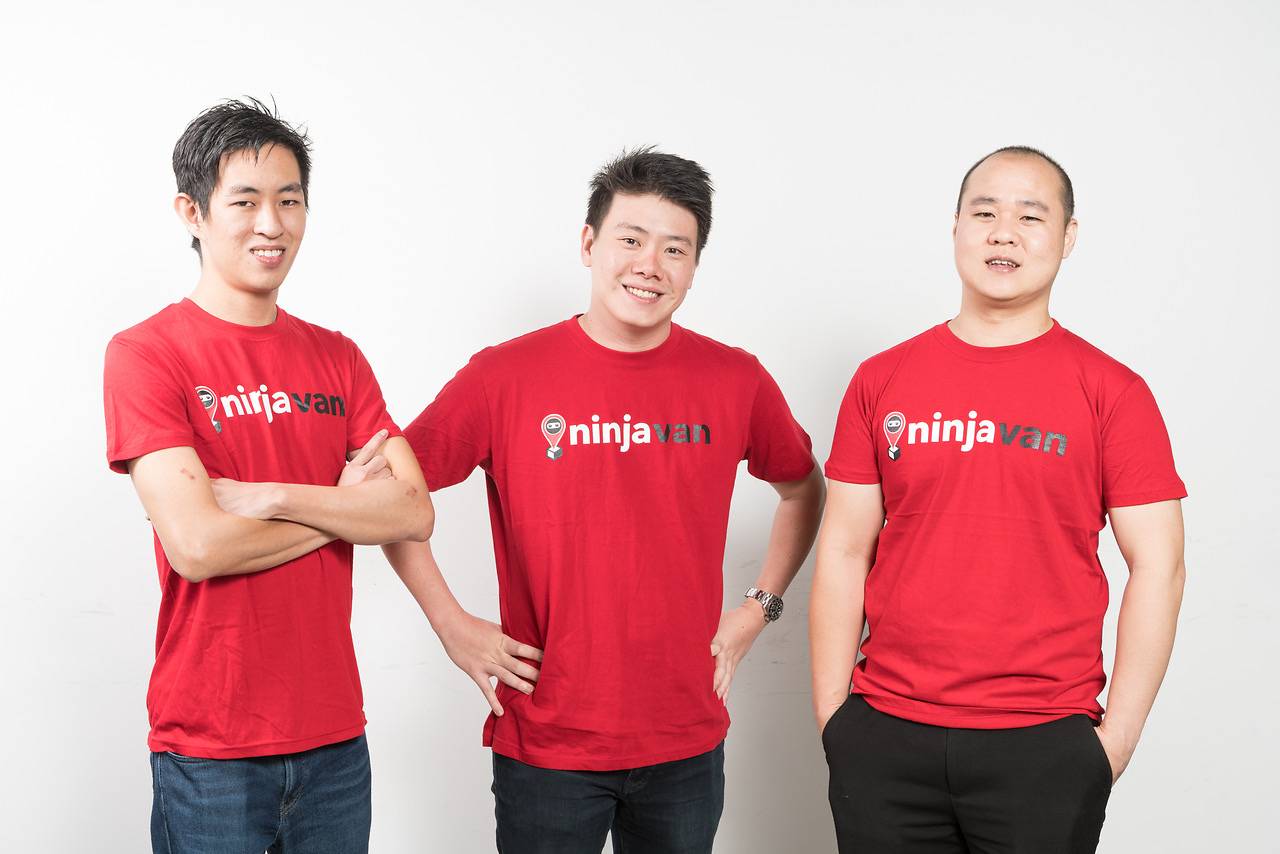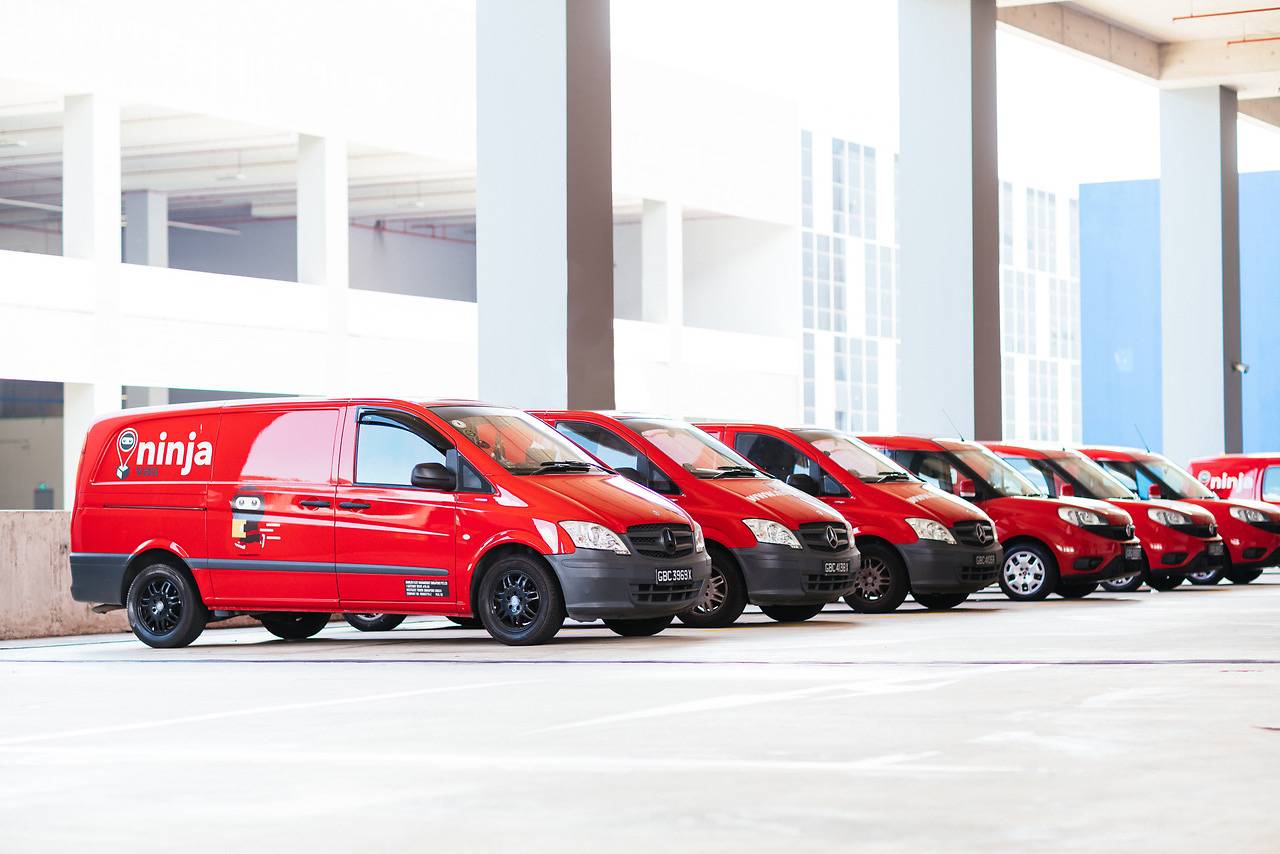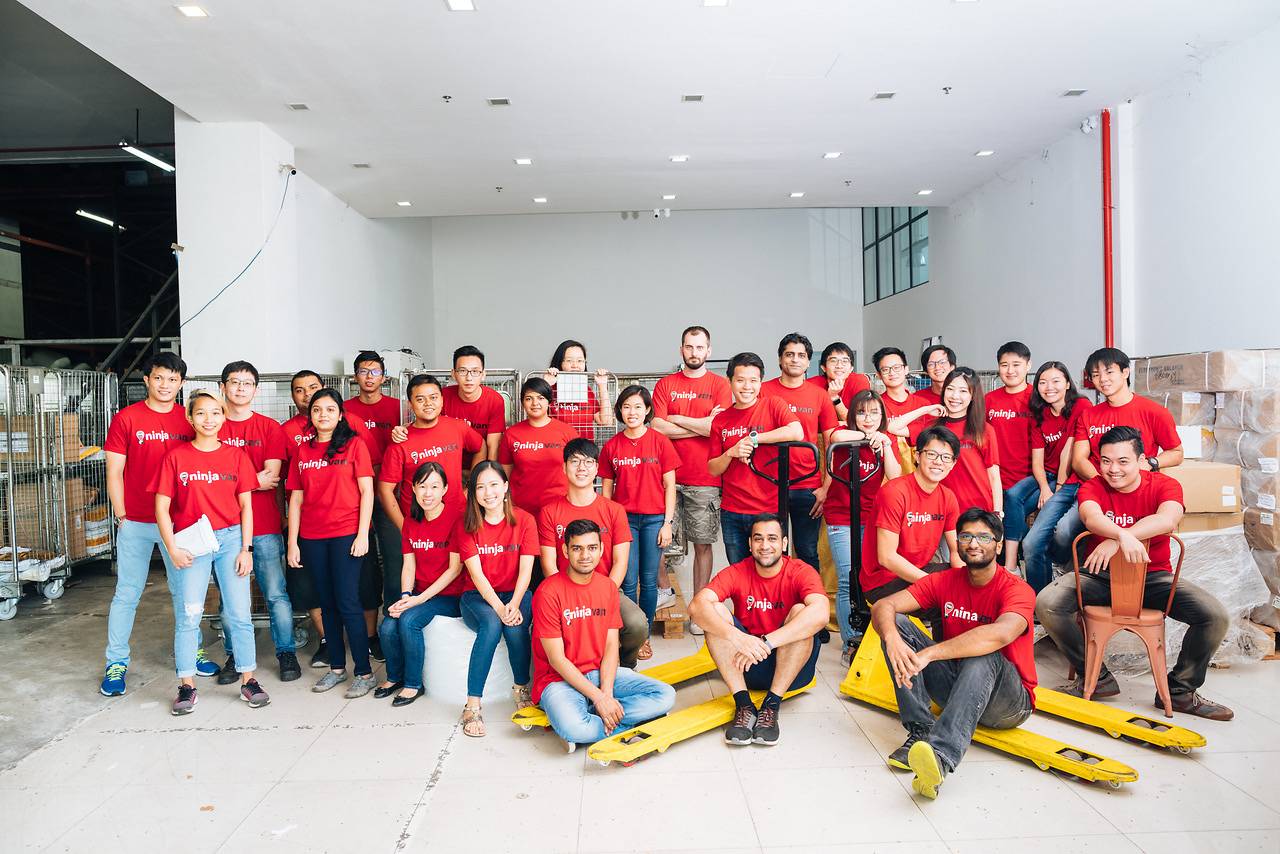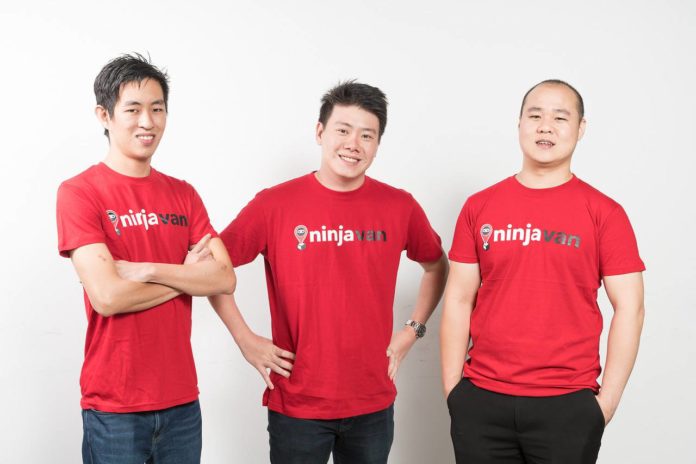SINGAPORE: Since 2014, Ninja Van and its fresh-faced CEO, Lai Chang Wen, have been much lauded in the media.
Within a little more than three years, from providing last-mile logistics services in Singapore, it has expanded across Southeast Asia – Indonesia, Thailand, Malaysia, the Philippines, Vietnam and Myanmar.
With 2,000 full-time staff and 10,000 full-time drivers, its aim is to use technology to enable next-day door-to-door deliveries for e-commerce firms and their customers.
The company recently reportedly raised a record amount in its series C funding round. To date, Ninja Van has received a total of more than US$115 million.
But amid the positive news, there’s been a considerable amount of negativity as well.
Last year, critical reviews of the service started surfacing on social media especially during the Singles’ Day 11/11 sale period. Since then, complaints have surfaced on and off. While there are some positive reviews, surely the negative ones have hurt business?
During our interview, Mr Lai claims they haven’t. He urges a sense of perspective.
“We have about 10 thousand full-time drivers across the region. There are going to be screw ups and I think we have to accept that. When we first started the business, we were very pedantic about it. Every single complaint, we took it personally, we took it to heart.”
But shouldn’t any good business rightfully do so?
“A business should always respect these issues, but as a business owner, a senior manager, you stop taking these things personally because it just clouds the data. If you delivered 10 million parcels a day and one parcel has issues and that customer kicked up a huge fuss, we still resolve it in a correct way, but you don’t kick yourself, you don’t lose sleep over it. That way, you’ll never get to sleep because everyday there will be problems.”
He claims “given the total volume” of transactions, the complaints are below the average industry standard and they have been working to “methodically decrease” them.
“But I think we’re confident that it’ll never be zero.”
Often, he claims they get blamed for issues that aren’t even under their purview as a delivery service.
“There have been instances where customers go crazy. They blame us for the wrong items in the parcel but we had no hand in packing the parcel at all. It’s easier to just blame the person who’s at your doorstep giving you the parcel, for everything that’s wrong with the parcel.”
But generally, how they’ve handled complaints on social media has also come under scrutiny. Often they don’t address the complaints publicly.
“When something goes out of hand, we try to step in and help. Whether or not we actively go out there and defend ourselves is a separate issue because many times, if you are a logical person, a rational person, and you look at our explanation, you’ll probably see our point of view. But if the person is angry and just keeps ranting, the last thing we want to do is get into a public spat. We believe in keeping quiet, doing the best we can, being logical about what we’ve done wrong and addressing it,” he says almost nonchalantly.
SHOULD HAVE CUT HIS LOSSES EARLIER
His goals for starting Ninja Van were simple, he says.
He wanted to make “a real difference”.
He often talks about his team – Chief Technology Officer Shaun Chong and Chief Operating Officer Tan Bo Xian.
They started the business together.

Lai Chang Wen (centre) with his business partners, Chief Operating Officer, Tan Bo Xian (left) and Chief Technology Officer, Shaun Chong (right). (Photo: Ninja Van)
But Mr Lai’s entrepreneurial instincts had surfaced long before.
While in secondary school and Junior College, he would buy used mobile phones online and sell them later at a marked-up price. He would also buy bicycle parts and re-assemble them to sell bikes at a profit.
“It was more hustling than business. Someone needs to sell it and you buy from him. Then you can afford to wait a week or two weeks to slowly sell it off. Chances are, you can make a bit of money.”
His first “real business” was a made-to-measure menswear line, Marcella, which he set up while he was a student at Singapore Management University (SMU).
After graduating, he went into investment banking while doing the business on the side.
“Investment banking was probably the best paying job a graduate can get but I quickly realised that I didn’t want to work for money. Money is a hygiene factor. I wanted to work to make an impact. I wanted to learn something new every day.”
So he quit his job to go into business full-time. It meant a 90 per cent pay cut.
Marcella arose from his personal frustrations at not being able to find a well fitting shirt and it seemed like an impressive solution. It automated the process of translating clients’ body measurements into paper patterns.
But he soon realised he couldn’t make it work.
“I’m not great at brand-building for fashion. It has to tug at the heartstrings of your customers. I’m better at hard things. I’m better at supply chain, When it comes to fashion I think there’s a small innate part of me which honestly doesn’t understand fashion.”
He ran the business for four years before calling it quits.
As we discuss this, his voice falters and he looks away for a moment. It’s the only time during our chat that he’s far from upbeat.
“I should have realised earlier that this is not a competency and tried to fix it earlier. We just dragged our feet along. Many times, we have too much attachment to things we start when we shouldn’t have that attachment, when it’s fundamentally not what you should be doing. I should have cut our losses earlier.”
But he does credit Marcella with giving him the idea for Ninja Van.
While he spent six months in China setting up a factory for Marcella, he decided to take the next step by selling online, but unreliable courier services rendered deliveries to their customers delayed or lost.
AUTOMATING HUMAN INTUITION
Ninja Van was designed as a solution to this problem.
He was 27 when he and his partners founded Ninja Van.
They had no experience in logistics, but leveraged their mathematical and technology skills to improve the delivery process, examining the entire life cycle of a parcel, from the point it is picked up to when it is delivered.
Instead of traditional mail-sorting methods, staff at Ninja Van use their mobile phones to scan parcels to figure out where the parcel is heading.
It employs technology and algorithms to optimise every step in logistics, for instance to recommend the best routes for drivers, or which van should be used to deliver a parcel.
As a result, drivers are able to deliver more parcels within a shorter period.
The technology is designed to “automate human intuition”.
“Usually, human intuition is what stops scaling and providing the consistent quality of service. When drivers have to know every address and they have to decide on what’s the most efficient route to take, it’s always challenging, because not all of the people you hire might be able to do this. So we believe in automating this intuition, which means that our addressing systems are strong, our routing systems are strong and efficient.”
This has also helped them with recruitment efforts across the region.
“Our belief is you are more productive in Ninja than outside Ninja. Using the systems we have, you are able to do your job in a shorter period of time which means that on a per parcel basis, we do not have to pay you more. So we are not paying you more per se, but because you are more productive, you earn more overall, or you work less overall.”
For customers the aim is clear.
“The idea is to make sure your shopping is hassle-free. People just want predictability and control.”
At this point, I wonder again if he’s managing to meet these demands considering the complaints we talked about earlier.
He insists that problems usually occur during peak shopping periods.
“If your volumes increase by three times, the question is can you hire three times as many drivers overnight? It’s difficult. We expect people to be unhappy. We try to pre-empt them by telling them there might be delays.
“Also, to be honest, our real customers are the shippers which choose us and if they are more data driven, they will realise that these complaints coming in are way below the industry average.”
The plan within the next six to 12 months is to give customers full control over when their parcel arrives and where it’s delivered.
Customers will be able to say, “‘I am not at home now. Why don’t you deliver in three hours or a certain specific timing, or drop it at this convenience store near me instead and let me collect it.’ Today, we let you do this but in a limited way, not throughout the entire delivery process. There’s a cutoff time where we say, now you cannot choose anymore, it’s going to your house.”
He admits quality control will remain a challenge that they’ll have to continually monitor.
It’s a challenge that looms larger in their other Southeast Asian markets.
“I think we expanded at a pace which was surprised even ourselves. We now deliver to 500 cities and it’s not as simple as opening them up individually. It’s a network. Having so many people, a lot of challenges came up when it came to standardising our quality of service and operating procedures, making sure that even someone in the furthest reaches of the Kalimantan area adheres to the quality promise.
“We are constantly learning new things about how to come up with training programme, how to set certain rules, how to build frameworks.”
Customer behaviour is also unique in some markets.
In Vietnam for instance, a customer could order two or three similar items from just as many merchants, but only accept one delivery.
“He or she only accepts the first one that comes at the right time – when he or she is home. Many parcels are being rejected. It’s cash-on-delivery, so they just order two or three because it is at no cost to them.”

Within a little more than three years, Ninja Van has expanded across Southeast Asia with more than 10,000 full-time drivers. (Photo: Ninja Van)
REPLACING HUMAN INTUITION?
He talks a great deal about automating human intuition, so does he believe technology can replace human intuition?
“How real is it that artificial intelligence or machinery can take all our jobs? That’s a bigger question which I have no answer to. But in the next 10, 15 years, do I see drivers being replaced by automated drones in delivering parcels to your doorstep? Probably not.
“If you can build robots which are so complex they can go through small alleys, they can climb the steps and they can find the doorstep of a place which has no markings or numbers on it, I think robots will be used for a lot more useful things than delivering parcels.”
He concedes it’s not impossible.
“But will we spend a lot of our efforts in chasing this given its extremely low probability? No. And I think if anything, this technology is best built by the global companies, not for logistics but for example, warfare, automation in soldiers – something far more important.”
He does see scope for drone deliveries in “larger countries where there are low-density rural villages.”
“We have seen trials, but usually what we’ve seen is that the cost of the automation is expensive, but labour in these countries is still affordable.”
LONG-TERM SUSTAINABILITY
Their expansion has obviously come largely because of healthy funding by investors.
I ask how he convinces them.
“It was our vision which is really is to make sure that a Ninja is within reach of every consumer in Southeast Asia. It is a coverage game for us because it’s not just pure volumes and saying that we do the most volumes in capital cities. It’s about being an enabler which allows any company to deliver something to anyone in Southeast Asia.
“A lot of the population lives in Tier 2 or Tier 3 cities. It is key to connect all of them and companies do not want to work with 10 different logistics providers with 10 different operating procedures to get their goods there. You want to work with one. We looked around the market and saw there was none.”
At this point they have no plans to venture beyond the region.
“Look at DHL, for example. Why is DHL delivering the majority of your parcels which you buy from Europe or the US? It’s because you are a global consumer and the shipper uses DHL because DHL provides global coverage. It’s hard to fight global coverage because they work with 200 different providers for every country. But their global coverage comes at a high price too. For us, our ambitions are not on the global levels yet. We can take parcels from anywhere globally, but we ensure that it reaches the hands of the Southeast Asian consumer and perfecting that at a lower price is the focus now.”
He says they are profitable in Singapore. It’ll be some time before they are profitable in their other markets.
Today, his focus is on long-term sustainability.
Some startups in recent years have focused on market share and many well-known ones are unprofitable even after several years.
“Over-focusing on market share, you could have a price point and fixed cost structure which can never turn profitable. To me, long-term sustainability is long-term profitability which means that in the medium-term, we focus on what’s really important – a measured approach towards providing the best hassle-free service for our business customers and consumers.”
It was a hard slog getting to this point.
It’s been widely reported that in the first few years, he would sleep on a mattress on the floor in his warehouse because there was just so much to do. He would also often make deliveries himself.
In fact, life as an entrepreneur is still tough.
Today, he spends a lot of time travelling to their various markets.
One of the hardest things about regionalisation has been understanding culture, a perennial problem that many before him have raised as well.
“I think Singaporeans are a lot more direct. They tell you how they feel. Other cultures sometimes are a lot more passive-aggressive. They say ‘no’ in very different ways and if you don’t catch that subtlety, you completely miss the point.
“In one country, we wanted to launch a big initiative and the guys in the local team said, no problem. Only later did we realise that they were really against it. They just didn’t want to say “no” outright. They said “no” by doing it slowly, and by being very slow to respond to everything. Now, we are a lot more perceptive about these subtle cues from them and we sometimes have to talk it out or hire someone else.”
“Chase the learning. Don’t chase the lifestyle because it’s all fake,” says Lai Chang Wen. (Photo: Ninja Van)
IT’S NOT ABOUT BEER NIGHTS EVERY NIGHT
He enjoys it all, though, and puts it down to having the right mindset.
“The objective of entrepreneurship is to change mindsets away from working for the Government and MNCs and only having one path in life which is the iron rice bowl. If you want the nation as a whole to succeed, I think people have to be more exposed, people have to be more thoughtful. We have to be more experienced in the wider scope of things and I think a great way to do that is to join a startup.”
But often, the young have the wrong perceptions about what joining a startup really means.
“They think it’s always fun and you get full autonomy. They think it’s about having beer nights every night. But it’s not. You must join the right startup where you get enough responsibilities and roles thrown at you. That helps you learn a lot. Chase the learning. Don’t chase the lifestyle because it’s all fake.
“It’s a lot of hard work, it’s a lot of resilience but through that all you, I think your objective is to learn as much as you can in a broader sense of how do you manage people, how do you think about problems and these are all easily applied to other businesses easily.”
WHAT’S REVERSIBLE, WHAT’S IRREVERSIBLE
In previous interviews he has mentioned his parents often. They worried for him when he left a lucrative job to start a business.
When he started Ninja Van, he often had to make deliveries himself which didn’t help his parents’ anxieties.
“Their worry was that I was leaving a better job to be a van driver and I don’t think they really appreciated that fact.”
I wonder if they are proud of him today.
He claims they don’t discuss it, but he senses they are happier now.
“This is a big problem with Singapore as a whole – the idea of what’s reversible and what’s irreversible. A lot of decisions you take throughout life are actually reversible, but many people think they’re not.
“Will I be able to join the bank again if I leave for two years and do something else? People always think you cannot, but reality is you can. They think you’ll lose two years of your life. But the question is will these two years have a positive impact on your future? Even if you fail, you’ll probably learn a lot.
“Going down one path doesn’t mean you cannot backtrack and go back another.”
He blames it on our education system.
“I think a lot of our education has been built on the system of irreversibility. In PSLE, if you don’t do well, it’s quite tough to take the PSLE again and the same thing for O-levels and thereafter.”
I point out you can, except you’ll have to deal with the stigma of not having made it the first time.
“It’s tough and no one ever talks about these things openly.”

“I now encourage people to voice their opinions. Don’t just listen to me because you are scared of voicing your opinion. I will not take it personally,” says Lai Chang Wen. (Photo: Ninja Van)
HAVING THE RIGHT PHILOSOPHY
His philosophy is really believing in the business and its impact and doing what is necessary to achieve it, something he believes some traditional SMEs lack.
“Some of them make very superficial references to modernising, to embracing technology. If you don’t actually believe in it and you think it’s just a trend, people see through it. You don’t hire the right people and you actually never change. So unless you really believe in it and you delve into the principles of how technology can really make a difference, your words just sound very hollow. How are you going to get your people on board? People are most important.”
He himself feels he has made some mistakes with people.
“I think we regionalised quite fast. It was probably the right move. You really need to plant the seeds early, but one thing we could have done better is to have focused more on hiring strong leaders in all the different countries. It took us a long time to get there and it slowed us down significantly. We were too much in a rush and maybe a bit lazy to keep looking. We shouldn’t have compromised and we should have hired the good guys earlier on.”
Today, at the age of 31, he’s learning to manage his people better which he believes is the key to continued business success.
“It’s a dialogue when there are different points of view and the other party actually stops to think about the other person’s point of view. It’s about humility and understanding. I’m constantly trying to learn more and it’s not easy sometimes. It’s easy to fall into very defensive mode. Many times I’m a bit rash and can be a bit stubborn.
“I now encourage people to voice their opinions. Don’t just listen to me because you are scared of voicing your opinion. I will not take it personally. I think that can combat my rash choices and help us make a mark together.”





